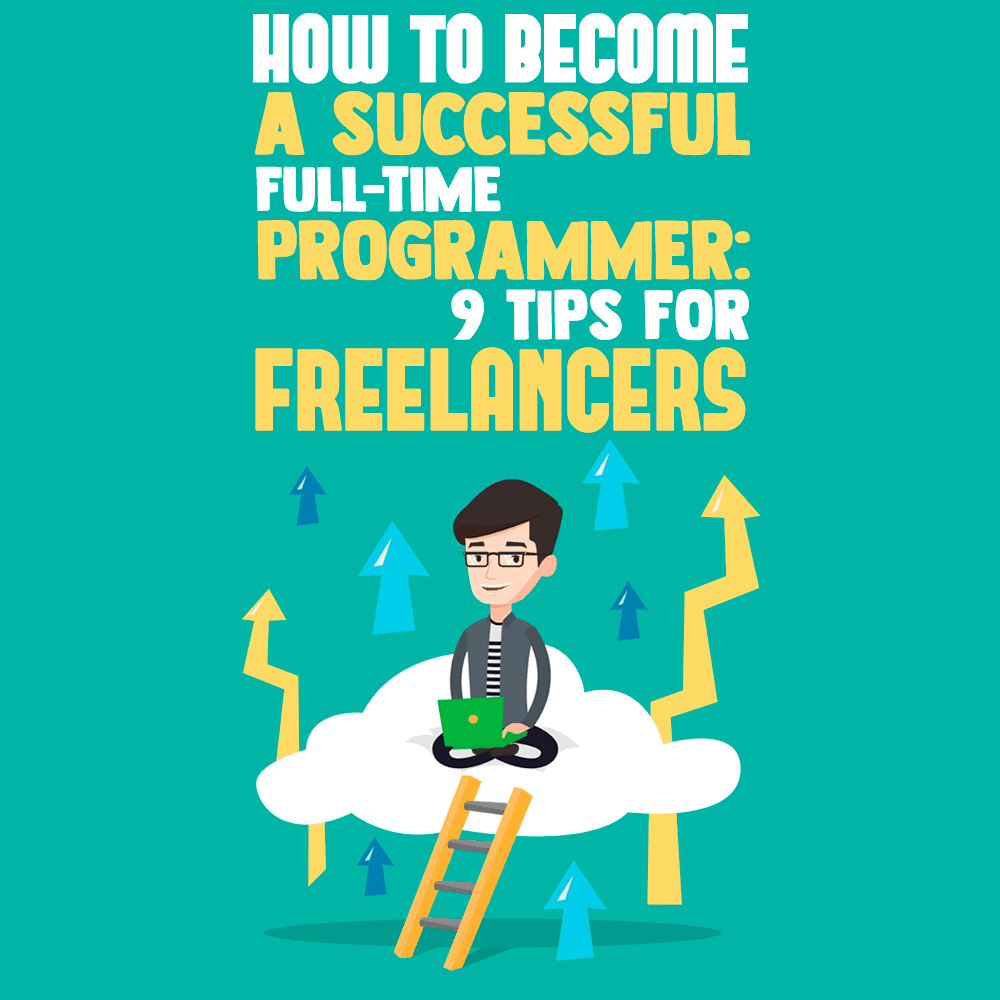
According to Nasdaq, 43% of all U.S. workers will be freelancers by 2020. This applies worldwide and in most industries, including software development. That’s why you can find a lot of blog posts on how to jump from a full-time programmer job into freelance developing.
But what if you don’t get as much pleasure and profit from running your own freelance business as you used to? Opting for a full-time development job can be the solution in this case, though this might sound a bit challenging.
However, the transition from freelance programming to a full-time development position isn’t as difficult as you might think. You’ll be in a new environment and will get to meet new people, but the nature of your work will mostly stay the same.
What Does it Take to Transition to a Full-Time Programmer Job?
In order to acclimate to your surroundings and find success in your new position, there are some things you need to keep in mind. These are details a freelance programmer might never need to care about, but as a full-time programmer, you most certainly will.
So, let’s get started!
Set Your Alarm Early
Whereas freelancers set their own schedules, full-time programmers need to get their work done between certain hours. The difference can be a little jarring, but once you get used to it, finding your work-life balance can be much easier.
Set your alarm earlier than you need to. This will make sure that you don’t oversleep because you forgot that you have somewhere to be. It will also give you time to fit in your favorite activities in the morning. You’ll feel less like a corporate slave if you’ve already had breakfast, done yoga, and enjoyed a morning walk with your dog.
It’s also a good idea to show up to work 10 minutes early. If you run late, you’ll actually arrive on time. Set your standards high early in your career; you can relax once you understand the company culture.
Learn the Company’s Shorthand
If you’ve been hired as a full-time programmer, there’s a good chance you are joining a pre-existing team. Every team has their own shorthand for project comments and their own way of naming files. Learn these words and phrases as quickly as possible. Your projects will quickly fit in with everyone else’s, and you won’t waste time asking the same question repeatedly.
To save yourself some trouble, write down each shorthand term as soon as you see it for the first time. Keep these notes by your desk until you’re sure you know the local language.
Leave Extra Comments
On the subject of notes and comments, leave as many in your programs as possible. Otherwise, your code might be completely indecipherable to an outsider, slowing down everyone’s work.
Hopefully, the importance of habitual comments was drilled into you during your first computer science class. But if you are one of those developers who like to limit the number of comments, pay attention to your company’s culture. It’s always better to leave too many comments than to leave too few and risk a misunderstanding.
When you work for yourself, your notes might take on a more personal and relaxed attitude. Remember that you’re in a corporate environment, and take extensive, thorough, and professional notes. Write comments as if your boss will read them, because there’s a good chance they actually will.
Put Extra Polish on Your Projects

You’re working for a company now, and that means everything you produce needs to fit into the company’s brand identity.
Start by understanding the company you work for and the image they would like to project. Try to keep this tone in mind during the early development stages of a project. If you work for a luxury company, make luxury apps, and hold yourself to a higher standard.
Take a minute between each step of your project to make sure you’re developing within the company’s identity. Your projects will require fewer revisions, and you’ll be on the fast track to a promotion.
Keep Your Own Backups
Most development companies have a backup system. Learn how to use it, and save copies of all your files. You’re probably going to upload mutual files to a shared folder and keep a separate copy on your computer.
It’s also a good idea to keep another set of backups on a flash drive. You never know when a power failure will damage the company servers. An employee’s personal backup once saved an entire Pixar movie.
Of course, you should never take these backups home with you, and you should definitely tell your boss that you’re keeping them.
It’s fine not to trust your personal work to the whims of the IT department, but your code is now company property, and you should never take it off the premises without permission. When you clock out for the day, leave both your flash drives and your work stress behind.
Know the Limits of Your Contract
When you’re a freelancer, you own everything that you work on until you sell it to the client. When you work for a company, you don’t own your code, and your employment contract might require you to abide by certain limitations:
- If you’ve signed a nondisclosure agreement, you can’t talk about your projects with your friends and family.
- If you’ve signed a noncompete clause, you may not be able to apply for jobs at other development companies for a set period of time. This clause might apply to personal development projects; talk to your employer for details.
- Even if you don’t have a noncompete clause, you still can’t use company property or software to work on your personal projects. This includes a work-issued laptop that you use at home.
Communicate with your employer before you start working for the company, and check in with the company’s legal team if you have any questions. Remember that you don’t need to disclose your personal projects; you just need to check that you’re not violating any clause in your employment contract.
Learn to Socialize
Socialization is actually key to workflow. When you know the members of your team, it’s easier to work alongside them.
A certain amount of socialization is necessary to know how your coworkers think and get things done. You should know your coworkers’ names, what they do, and a little bit about their personality. Positive workplace relationships will make you more productive, so try to foster professional friendships.
As a freelancer, you might be used to working by yourself. It’s fine to be an introvert, but you should still try to be polite and open to new experiences. Your coworkers of today are your industry contacts of tomorrow. They might even help you get a promotion within your current organization.
Every company has a different culture of socialization. Some companies encourage watercooler talk, while others prefer that conversation be saved for break time. Understand the local culture and your place within it. When everyone is comfortable, more work tends to get done.
Take Breaks
Programming is mentally exhausting work. Regular breaks are essential for your mental health and your eyesight.
Some companies have specific break schedules, but these are less common in developer positions. You probably had a loose break schedule during your time as a freelancer; try to mimic this schedule while adhering to your new workplace’s standards.
To be effective, breaks should be taken away from your screen. Get up and walk around the office. Fill up your cup of coffee or water bottle. Look at a piece of art hanging on the wall.
If you aren’t sure how often to take breaks, see what your coworkers are doing. And if you notice that one coworker never steps away from the desk, invite them to join you on your next coffee run; it might help them be significantly more productive.
Pick Up Extra Skills and Keep Evolving
One of the main benefits of a full-time position is room for career advancement. As a freelancer, you hardly get a chance to talk to your colleagues and learn something new from them. In a full-time position, it’s the other way around.

When you work full-time, you inevitably become interactive with your coworkers and get involved in company meetings. And that’s great, as you can pick up good habits and new techniques, and discover new frameworks and best practices, often thanks to your colleagues or team leads. Most likely, you’ll need an individual development plan that will contain your future expertise and new skills so that you’re worth more than your first resume, and so that a company gets even more value from your work.
If you choose to evolve into a management position, you’ll have to develop great leadership, communication, and presentation skills. You’ll need to express your ideas while still being able to fulfill the lowest position in the department you’d like to manage. You might not make management for several years, but if you’re interested, you could eventually end up in an executive role at your new company.
Changes Bring Opportunities
Every change can be a bit stressful at first, but remember that changes also mean opportunities to develop new skills, achieve new heights, and even make good friends.
Ultimately, full-time programming and freelancing aren’t actually that different. Once you make it past the reception desk and sit down in your chair, you’ll find yourself doing the same work that you love. Let yourself adjust to your new position. The stability and pay are usually well worth it.
